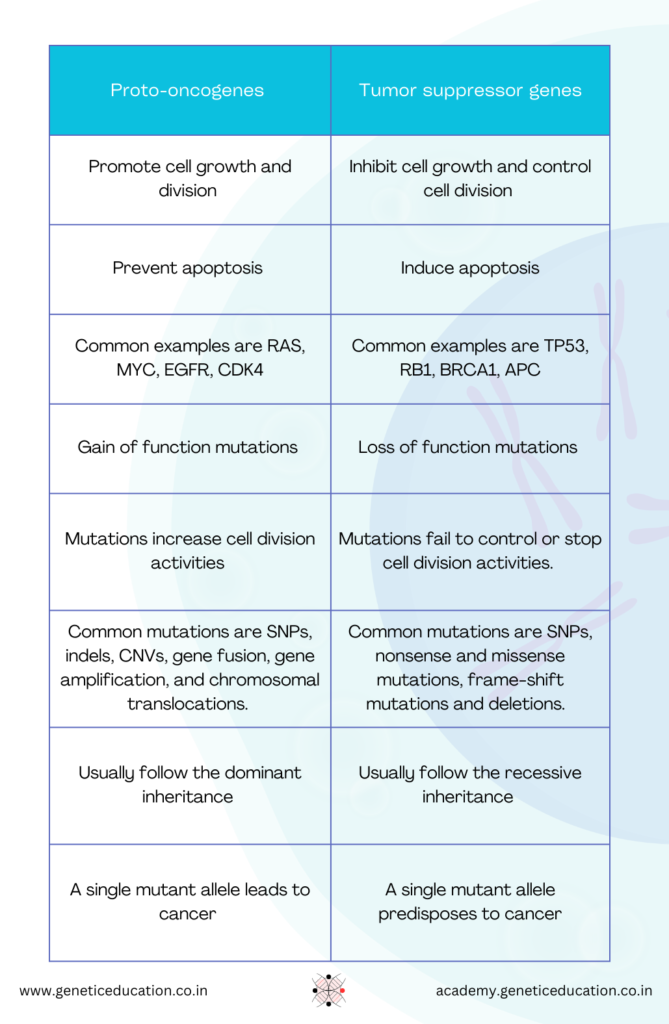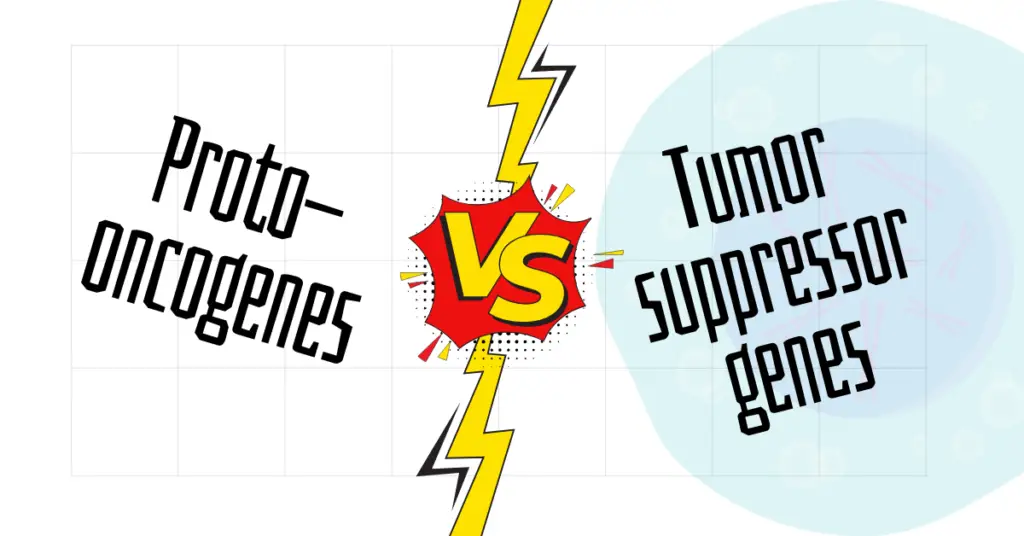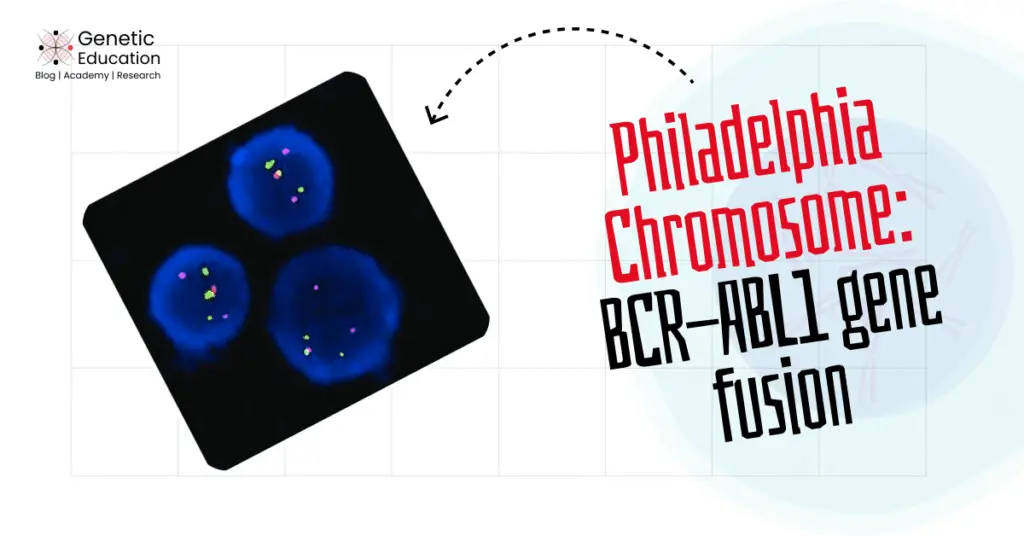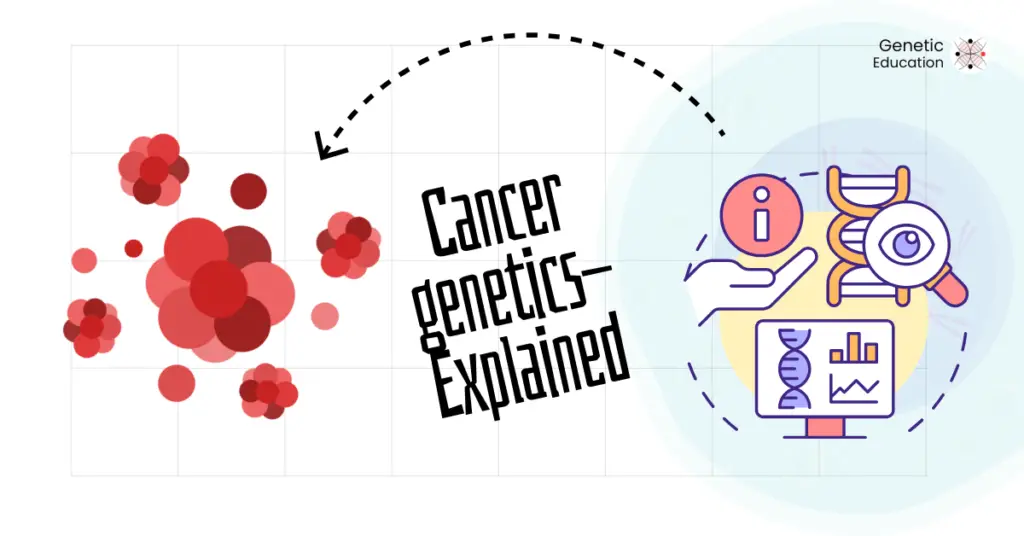“Discover the role of proto-oncogenes and tumor suppressor genes in cancer. Learn their key differences in this insightful article.”
Cancer is a complex and multi-step process originated by uncontrolled cell division. It’s a common cell cycle error with serious and lethal health-associated consequences.
Cancer genetics suggest that genes govern and tightly regulate the whole cell cycle progression and apoptosis process. Genes involved in this process are divided into proto-oncogenes, tumor suppressor genes and DNA repair genes.
Mutations in proto-oncogenes and tumor suppressor genes play a crucial role in tumorigenesis, though, have very opposite activities. In this article, I will explain the function of both these genes and discuss key differences between them.
Stay tuned.
Disclaimer: The content presented herein has been compiled from reputable, peer-reviewed sources and is presented in an easy to understand manner for better comprehension. A complete list of sources is provided after the article for reference.

Key Topics:
Proto-oncogenes vs Tumor Suppressor Genes:
Proto-oncogenes are the set of genes that promote cell division whereas the tumor suppressor genes, as the name suggests, suppress the cell division activity. Both, in balance, regulate the whole cell cycle activities.
Proto-oncogenes prevent cells from undergoing apoptosis, on the other side, tumor suppressor genes force cells to undergo apoptosis, if damaged. Note that apoptosis is a programmed cell death process that is also necessary for healthy cell cycle activities.
Proto-oncogenes, thus, are known as the “promoters”, whereas the tumor suppressor genes are known as the “defenders” of the cell cycle.
40 different proto-oncogenes while ~1217 tumor suppressor genes are to date reported in the scientific literature or known to us.
RET, MET, CDK4+, RAS, MYC and EGFR are some of the common proto-oncogenes. On the contrary, TP53, APC, MEN1, NF1, NF2, BRCA1 and BRCA2 are some of the common tumor suppressor genes.
In general, the functions of proto-oncogenes are to
- Stimulate cell proliferation
- Regulate gene expression for cell cycle
- Drive cell cycle progression
- Relay intrinsic cellular growth signals
- Prevent programmed cell death.
On the other side, in general, the functions of tumor suppressor genes are to
- Suppress cell division
- Trigger cell death in damaged cells
- Maintain genomic integrity by fixing mutations
- Halt cell division in damaged cells (DNA damage)
- Maintain chromosomal structure
The mutant counterpart of the proto-oncogenes is known as oncogenes whereas, tumor suppressor genes don’t have such forms.
Mutations in proto-oncogenes (when converted into oncogenes) increase cell proliferation and division activity. On the other side, mutations in tumor suppressor genes decrease its control over tumor progression and apoptosis.
Thus, mutations in proto-oncogenes are gain-of-function type whereas mutations in the tumor suppressor genes are loss-of-function type.
Consequently, cells divide infinitely, can’t reach apoptosis and cause cancer.
Common gain-of-function mutations in oncogenes are single nucleotide polymorphisms, copy number variations, indels, chromosomal translocations, gene fusion and gene amplification.
On the other hand, common loss-of-function mutations in tumor suppressor genes are point mutations, nonsense mutations, missense mutations, frame-shift mutations, large deletions, loss of heterozygosity and promoter hypermethylation.
Proto-oncogene mutations are usually autosomal dominant whereas the tumor suppressor gene mutations are usually autosomal recessive, in nature.
Only a single oncogene is sufficient enough to cause cancer whereas the tumor suppressor gene follows the two-hit theory in which the second recessive allele will activate at any stage during the lifetime and cause cancer.
Henceforth, oncogenes exclusively occur in the somatic cells whereas the tumor suppressor mutations can be reported in both the somatic and germline cells.
Here is the list of proto-oncogenes and associated cancer.
| Proto-oncogene | Cancer |
| RET | Thyroid cancer, MEN syndromes |
| MET | Lung, gastric, renal cancer |
| CDK4 | Melanoma, glioblastoma, sarcoma |
| RAS-family | Lung, colorectal, pancreatic cancer |
| MYC | Burkitt’s lymphoma, breast, lung cancer |
| EGFR | Lung, glioblastoma, head & neck cancer |
Here is the list of tumor suppressor genes and associated cancer.
| TS gene | Cancer |
| TP53 | Most cancers (breast, lung, colon, etc.) |
| RB1 | Retinoblastoma, Osteosarcoma |
| BRCA1/2 | Breast, Ovarian Cancer |
| APC | Colorectal Cancer (FAP) |
| PTEN | Prostate, Endometrial, Glioblastoma |
| NF1 | Neurofibromatosis Type 1, Glioma |
Summary:
| Proto-oncogenes | Tumor suppressor genes |
| Promote cell growth and division | Inhibit cell growth and control cell division |
| Prevent apoptosis | Induce apoptosis |
| Common examples are RAS, MYC, EGFR, CDK4 | Common examples are TP53, RB1, BRCA1, APC |
| Gain of function mutations | Loss of function mutations |
| Mutations increase cell division activities | Mutations fail to control or stop cell division activities. |
| Common mutations are SNPs, indels, CNVs, gene fusion, gene amplification, and chromosomal translocations. | Common mutations are SNPs, nonsense and missense mutations, frame-shift mutations and deletions. |
| Usually follow the dominant inheritance | Usually follow the recessive inheritance |
| A single mutant allele leads to cancer | A single mutant allele predisposes to cancer |
Wrapping up:
In conclusion, regulated activities of both proto-oncogenes and tumor suppressor genes are required for healthy and controlled cell division and cell cycle progression. Mutations in either cause tissue-specific cancer that can also spread to other distant organs.
However, proto-oncogenes are more aggressive and dominant than the tumor suppressor gene mutations.
I hope you like this article, read our previous article on cancer genetics genetics and subscribe to Genetic Education.
Resources:
Oláh E. Basic Concepts of Cancer: Genomic Determination. EJIFCC. 2005;16(2):10-15. Published 2005 May 17.
Kontomanolis EN, Koutras A, Syllaios A, et al. Role of Oncogenes and Tumor-suppressor Genes in Carcinogenesis: A Review. Anticancer Res. 2020;40(11):6009-6015.



Hi my loved one I wish to say that this post is amazing nice written and include approximately all vital infos Id like to peer more posts like this